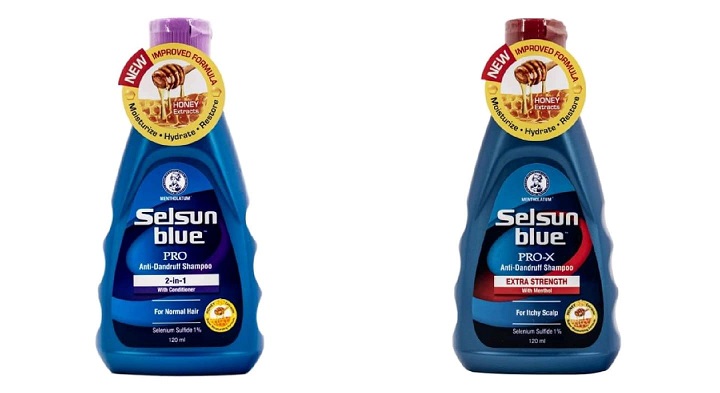It may be a common and manageable skin issue, but dandruff or those dreaded noticeable white and sometimes itchy flakes can be bothersome, and yes, even embarrassing at worst. The thing is, not a lot of people know the root causes of dandruff and the best ways to control it when things get – well – flaky. Selsun Blue, an expert in scalp health, is clearing up some myths and other things people get usually wrong about dandruff and sharing some tips to healthy, beautiful, flake-free hair.

The first thing to know about dandruff is that they’re simply flakes of dead skin that form on the scalp that’s usually accompanied by itching, redness, and irritation. While it’s normal for skin cells to die and flake off, some people experience an unusually large amount of flaking. This should not be a cause of concern, but common misconceptions can aggravate the condition. To effectively control flaking, here are some dandruff myths that should be debunked:
Dandruff is just a sign of dry scalp. Contrary to common belief, those white flakes are not only caused by dry skin, sensitivity to haircare products, and product buildup or poor hygiene. And of course, it’s not something contagious that anyone can get from family or friends who have it.
Chronic dandruff is usually linked to seborrheic dermatitis, an inflammatory skin condition that may be driven by a certain fungus called malassezia globossa that’s found naturally on everyone’s skin. It feeds on the oils and fatty secretions in the skin and scalp and doesn’t always cause problems. But sometimes it grows out of control and can irritate the scalp and cause more skin cells to grow, which eventually die, fall off, and clump together with oil from the hair and scalp, making them appear white, flaky, and visible in the hair or on the clothes.
Brush or scratch dandruff off the scalp to minimize appearance. Sloughing away flakes from the hair and scalp may be satisfying, but these steps can further inflame and irritate the skin, worsen dandruff, or even lead to infection. Treating hair with oil may also not work for everyone, especially if the problem is caused by an oily scalp, which can only make flakes greasy.
The best way to manage dandruff is to use a shampoo that aims to keep the scalp healthy. Selsun Blue, for example, is formulated with Selenium Sulfide 1% which attacks the root source of this skin issue. Selenium Sulfide is an anti-infective and anti-fungal agent, approved by the US Food and Drug Administration.
It does its job in two ways. First, as an anti-infective, it prevents fungus and bacteria from growing on the skin. And secondly, it also slows down the rate of skin cell death and turnover. At the 1% concentration of Selenium Sulfide found in Selsun Blue, it can stop the accumulation of scaly dandruff particles and reduce any redness and itching from seborrheic dermatitis of the scalp. It’s recommended for use at least twice a week or as directed by a doctor. For alternate days, using regular shampoo is fine.
Stock up on Selsun Blue to prevent scalp from getting flaky. Watsons is offering a discount – 10% off for non-members and 20% off for members – on your second bottle when you buy from February 21-27!
When you think of your skin health, think about your scalp too. Say goodbye to dandruff and hello to healthy scalp and great hair days with Selsun Blue.

